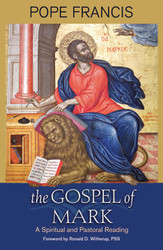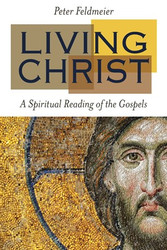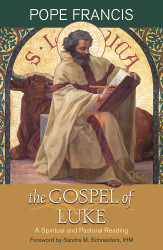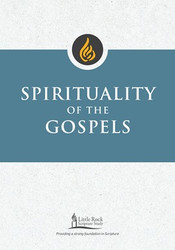Within each of the four gospels there is a foundational spirit, a spirituality of the gospels. That is to say, each gospel contains rich images and values central to the vision of the person of Jesus' and to the path toward spiritual transformation in his image. In this volume Patrick Hartin first looks at each gospel and asks such questions as Who is Jesus? and What transformation does this encounter with Jesus invite? Hartin then follows with examples of people who have appropriated the transformative power of these particular spiritualities from Saint Antony and Dorothy Day to Saint Augustine and Archbishop Romero. Hartin's twofold approach gives us a deeper appreciation for the spiritual dimension of the gospels and helps us to be transformed in Christ by their message and vision.
| Format: | Paperback book |
|---|---|
| Product code: | LP3317 |
| Dimensions: | 6" x 9" |
| Length: | 144 pages |
| Publisher: |
Liturgical Press
|
| ISBN: | 9780814633175 |
| 1-2 copies | $13.15 each |
|---|---|
| 3-9 copies | $12.55 each |
| 10-49 copies | $11.96 each |
| 50-99 copies | $11.66 each |
| 100+ copies | $11.21 each |
Praise
In his most recent, wonderfully accessible book, Patrick Hartin offers the reader a thoughtful exploration of the spirituality of the four canonical gospels. The features that make this such an outstanding entry in the crowded field of books on `biblical spirituality' are two in particular. Hartin's jargon free, splendidly lucid definition of Christian spirituality is in itself worth the price of the book. Adding immeasurably to the value, though, is his equally straightforward approach to reading the gospels of Jesus with the results of historical-critical analysis at hand, but not dominating his presentation, and then letting the gospels' portrait of Jesus inform his sketch of each gospel's spirituality for today.
Fr. Hartin's book provides an excellent entry point for those interested in exploring biblically based Christian spiritualities. Hartin begins by defining such spiritualities as rooted in the incarnation. Utilizing a productive mix of historical critical insights, Hartin demonstrates how various Gospel values were adapted in several contexts between the second and twentieth centuries. This alone would make the book a worthwhile read. But then Hartin presses on to present possibilities for those who seek to bring to life similar values as avenues of transformation in the contemporary world.
For those readers looking for a spiritual vision that is more than pious wishes, that has real content, Patrick Hartin's book is ideal. Hartin deftly weaves together spiritual exploration with a study of the Gospels that reflects the best of historical and literary methods. He then incarnates this spirituality for his readers by lifting up lives such as Antony, Dorothy Day, Oscar Romero, and Augustine whose spiritual vision was rooted in the Gospels. Nuanced, subtle, yet very accessible, Hartin's work offers a gracious reading of the Gospels. It is ideally suited for Catholic undergraduate and church audiences, but would appeal to non-Catholic readers too.
Author
Patrick J. Hartin was born and raised in Johannesburg, South Africa. He studied at the Gregorian University in Rome and is an ordained priest of the Diocese of Spokane, Washington. He presently teaches courses in the New Testament and in Classical Civilizations at Gonzaga University. He is the author of numerous books, including: James, First Peter, Jude, Second Peter (New Collegeville Bible Commentary series), James (Sacra Pagina series), and Apollos (Paul's Social Network series), all published by Liturgical Press.








